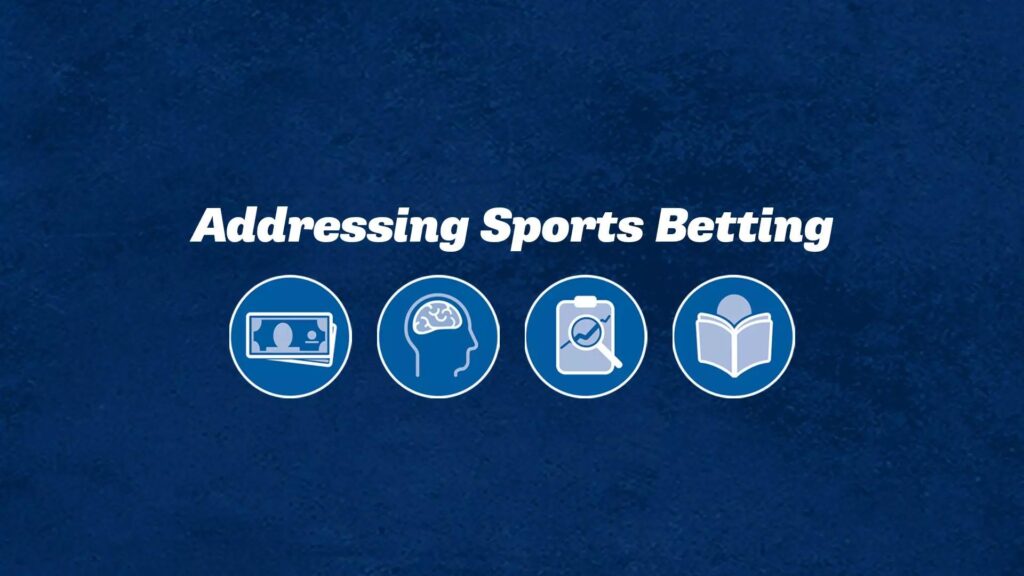The NCAA’s Division I Administrative Committee has taken a landmark step by approving a proposal that student-athletes-and-staff-to-bet-on-pro-sports/” title=”NCAA Unveils Exciting New Rules Allowing … and … to Bet on Pro Sports”>permits student-athletes and staff members to wager on professional sports. This significant policy shift marks a departure from the longstanding restrictions that barred collegiate athletes and personnel from engaging in sports betting, reflecting the evolving landscape of legalized gambling across the United States. The committee’s decision, detailed on NCAA.org, aims to align NCAA rules with current laws while maintaining the integrity of college athletics.
DI Administrative Committee Approves Proposal Permitting Betting on Professional Sports for Student-Athletes and Staff
In a landmark decision, the Division I Administrative Committee has approved a proposal that permits student-athletes and staff to engage in betting on professional sports. This move reflects the evolving landscape of sports betting nationwide and aims to align NCAA policies with state laws where such activities are legalized. The committee emphasized responsibility and integrity, ensuring that strict safeguards remain in place to protect collegiate sports from risks related to gambling.
Key components of the proposal include:
- Permitted Activities: Betting restricted exclusively to professional sports, excluding collegiate contests to prevent conflicts of interest.
- Monitoring Systems: Enhanced oversight tools to detect irregular betting patterns involving student-athletes and staff.
- Educational Programs: Mandatory training on responsible gambling and NCAA compliance requirements.
| Stakeholder | Allowed Betting | Restrictions | ||||||||||||||||||||||||||
|---|---|---|---|---|---|---|---|---|---|---|---|---|---|---|---|---|---|---|---|---|---|---|---|---|---|---|---|---|
| Student-Athletes | Professional sports only | No collegiate or DI conference events | ||||||||||||||||||||||||||
| Staff Members | Professional leagues and events | Prohibition on bets relating to NCAA activities | ||||||||||||||||||||||||||
| InstitutionsImplications for Integrity and Compliance in Collegiate Athletics Programs
The NCAA’s recent decision to permit Division I student-athletes and staff to engage in betting on professional sports marks a significant departure from longstanding institutional policies designed to safeguard competitive integrity. While this policy aims to align collegiate athletics with evolving legal landscapes and societal attitudes towards sports wagering, it simultaneously raises critical compliance challenges. Programs will need to reinforce education efforts, emphasizing the fine line between permissible pro sports wagering and prohibited bets on collegiate competitions, to avert potential conflicts of interest and preserve public trust. To assist athletic departments in navigating this complex environment, the NCAA has outlined several key compliance measures that must be implemented immediately. These include:
Challenges and Safeguards to Prevent Gambling-Related Misconduct Among Student-AthletesWith the NCAA’s recent decision to permit student-athletes and staff to place bets on professional sports, maintaining the integrity of collegiate competition becomes paramount. One of the greatest challenges lies in ensuring that gambling activities do not influence the outcomes of college games or create conflicts of interest. The increased accessibility to betting platforms has raised concerns over potential misconduct such as match-fixing, insider betting, and unauthorized sharing of confidential information related to teams and players. Safeguards must therefore be robust, employing advanced monitoring systems and comprehensive education programs that focus on ethical conduct and the possible risks associated with gambling. To mitigate these risks, the NCAA is likely to implement a variety of measures, including:
Recommendations for Universities to Develop Clear Policies and Educational InitiativesUniversities must prioritize the establishment of comprehensive policies that outline the scope and boundaries of permissible betting activities for student-athletes and staff. These guidelines should clearly define acceptable conduct to prevent conflicts of interest, protect the integrity of collegiate sports, and remain compliant with NCAA regulations. Institutions are encouraged to implement regular training sessions and mandatory educational programs that raise awareness about responsible sports betting, emphasizing ethical behavior and the potential consequences of violations. Key elements that these initiatives should cover include:
In ConclusionThe NCAA’s Administrative Committee decision marks a significant shift in long-standing policies surrounding sports betting within collegiate athletics. By permitting student-athletes and staff to engage in wagering on professional sports, the organization acknowledges changing attitudes toward gambling and the need to adapt to the evolving sports landscape. Stakeholders will be watching closely as this new policy takes effect, assessing its impact on integrity, compliance, and the broader culture of college sports in the years to come.
Add A Comment
|





